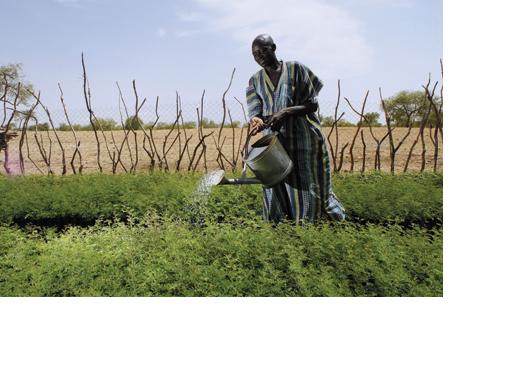Warming of the Indian Ocean threatens eastern and southern African food security
 Analyses of in situ station data and satellite observations of precipitation of eastern and southern African nations viz., Ethiopia, Kenya, Burundi, Tanzania, Malawi,
Zambia, Uganda and Zimbabwe is carried out by Chris Funk et al . The study reveals that the warming in the central Indian Ocean disrupts onshore moisture transports, reducing continental rainfall. Thus, late 20th-century anthropogenic Indian Ocean warming has probably already produced societally dangerous climate change by creating drought and social disruption in some of the world's most fragile food economies. The study quantifies the potential impacts of the observed precipitation and agricultural capacity trends by modeling "millions of undernourished people' as a function of rainfall, population, cultivated area, seed, and fertilizer use. Persistence of current tendencies may result in a 50% increase in undernourished people by 2030. Investing in agricultural development can help mitigate climate change while decreasing rural poverty and vulnerability.
Keywords: climate change drought famine precipitation
Analyses of in situ station data and satellite observations of precipitation of eastern and southern African nations viz., Ethiopia, Kenya, Burundi, Tanzania, Malawi,
Zambia, Uganda and Zimbabwe is carried out by Chris Funk et al . The study reveals that the warming in the central Indian Ocean disrupts onshore moisture transports, reducing continental rainfall. Thus, late 20th-century anthropogenic Indian Ocean warming has probably already produced societally dangerous climate change by creating drought and social disruption in some of the world's most fragile food economies. The study quantifies the potential impacts of the observed precipitation and agricultural capacity trends by modeling "millions of undernourished people' as a function of rainfall, population, cultivated area, seed, and fertilizer use. Persistence of current tendencies may result in a 50% increase in undernourished people by 2030. Investing in agricultural development can help mitigate climate change while decreasing rural poverty and vulnerability.
Keywords: climate change drought famine precipitation

